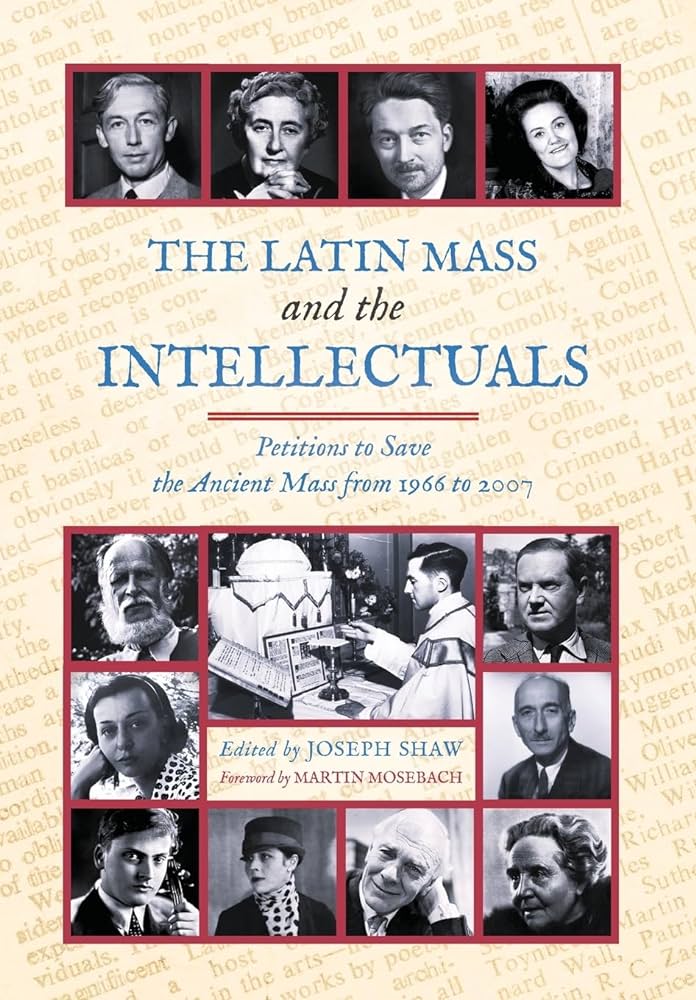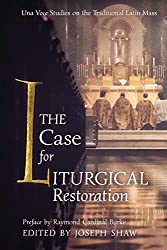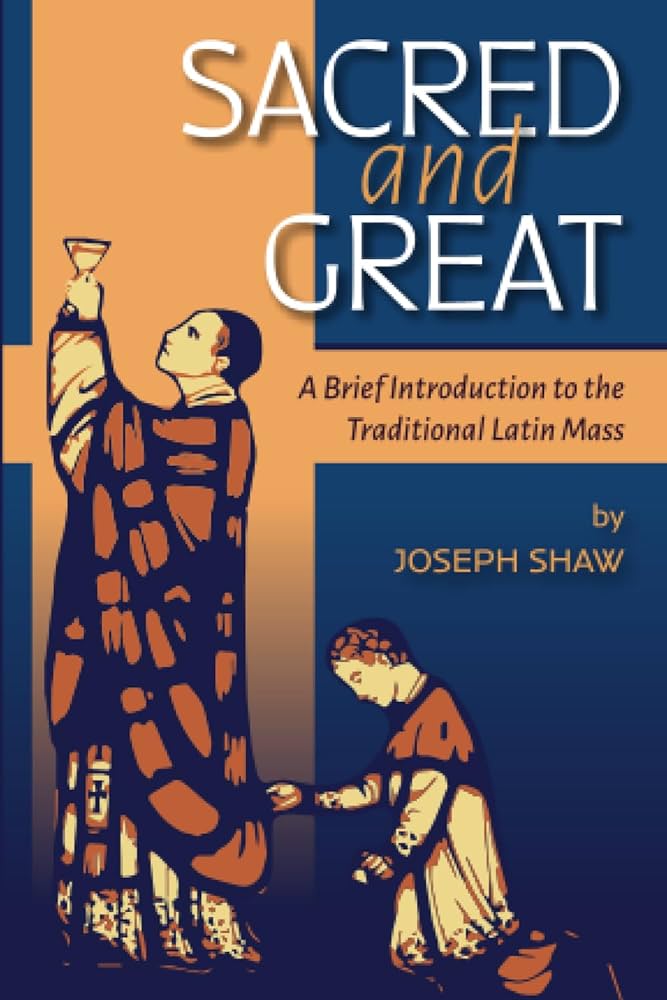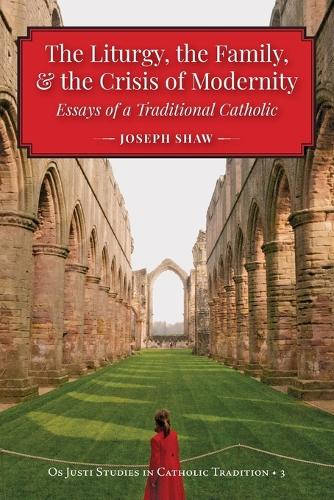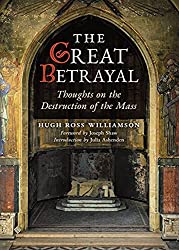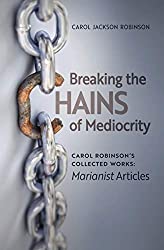
Joseph Shaw’s The Latin Mass and the Intellectuals tells a tale whose importance cannot be underestimated: how the Church’s traditional liturgy was rescued by a few dozen cultured and literary lay persons—some of whom, like Agatha Christie, Benjamin Brittan and W.H.Auden, were not even Catholic!
These were petitioners to Paul VI, the Pope who aimed to terminate all celebration of the Latin Mass after November 1971 (save for a few elderly priests who, until they died out, might celebrate the Old Mass completely alone—with no congregation, that is, of any kind.)
By dint of two petitions, though, in 1966 and 1971, the Vatican changed course. Thus was the door left open for efforts later mounted by St. John Paul II and Benedict XVI to restore the Latin Mass, clarifying the fact it was never abrogated.
But as Shaw makes clear, these later Pope’s efforts owe everything to petitioners like Christie, Graham Greene, Evelyn Waugh, Franco Zefferelli—not to mention Nobel and poet laureates, philosophers, poets, musicians and more—who, again, served to wedge the door ajar . . .
Yes, this story’s significance cannot be sufficiently stressed—at least if you are someone like myself who has become convinced, as Joseph Ratzinger, later Pope Benedict XVI was that:
the crisis in the Church that we are experiencing today is, to a large extent, due to the disintegration of the liturgy.
Yes, I am now convinced—though, as I shall say, I wavered on the fence for many years. Too many. Had I had this book decades ago, things might have been different!
For of many books I have read over the years on the crisis of the Catholic liturgy, this is among the greatest. This is because it not only tells the tale of the intellectuals’ battles to save the Mass—in a rich, edifying way, no less—but also reveals their profound insight and cognisance.
This last constitutes the book’s greatest gift: the sheer depth of perception and foresight the petitioners possessed.
That this is so, however, is, alas, not immediately obvious from the book’s title or even subtitle: Petitions to Save the Ancient Mass from 1966 to 2007. Indeed, my only real criticism of the book is that a different title might have served it better. It is too late now, of course, but I have the temerity to suggest something like: Making the Case for the Latin Mass: How Intellectuals Saved the Traditional Liturgy . . .
For although both title and subtitle describe what the book is—they are inadequate to explain what the book does. In other words, they describe the book’s contents, but not the book’s effects.
For although a rich history is well-told here by Joseph Shaw (along with contributions from others as well as documents from the time) what is, again, effected here is greater than the sum of the parts.
And all this serves to make the case for the Latin Mass in a magnificent way. Indeed of the many good and great books making the case for the Latin Mass over the last sixty years, this is one of the very best. Truly, it could do much to convince sceptics—or at least those wavering on the fence—as to how crucial the battle for true liturgy is.
Indeed, nothing seems to me more crucial than this—because nothing is more crucial to saving the Church from the abyss. Here is why this book is needed urgently.
Too many souls sit on the fence, as I once did (to say nothing of those who are outright sceptical or even hostile towards the Latin Mass). Even those who clearly see the dire problems of the new liturgy (and how few really see this!) may remain apathetic regarding the traditional liturgy. We have all heard the tired refrains:
‘Is not a reform of the reform sufficient? Could we not add traditional elements to the new Mass? Would not a few more smells and bells or at least a little more dignity in the priest suffice? Maybe if there were less bubblegum muzak and fewer cleric comedians at the Altar of God? Surely, we just need a little more reverence—not radical change?!’
Here is a problem, I think, for the entire Latin Mass movement: how few Catholics truly see the answer to such questions is a decisive no.
And of those who do see, how few can clearly make the case today!
But this book by Shaw can and does just this.
Before continuing, I hope a personal digression may illustrate. I understand ‘wavering on the fence’ because, again, I wasted too many years on this myself. I liked the Latin Mass, but I said to myself: ‘Surely it can’t be that big a deal?’
At the time, during St John Paul II’s reign and even early into that of Benedict XVI, I thought: ‘If these great men aren’t going all out to restore the liturgy, then it surely says something. It can’t be that important, if ninety-nine per cent of the Church thinks differently to me.’
No more. I see, to my shame, I wasted years of my life dithering.
I hardly think I am alone here. No, many others may be wasting years still . . .
Part of the problem is that there is no single over-riding problem, easily apparent to all, in the New Mass. What is wrong with it is not flagrantly obvious. Indeed, it would be tempting to say ‘the devil is in the details’—were it not that many of these so-called details, on deeper examination, prove to be terribly important.
At any rate, a vast number of changes in the New Mass were effected for pragmatic ‘common sense’ reasons (rather than truly spiritually inspired ones)— and they soon mounted up.
A mountain of difference, then, between the Old and New Masses does exist. Yet that mountain may be denied—or one may suggest the answer lies in fixing this ‘detail’ or that. Again: supplementing the New Mass with more Latin, more chant, more smells, more bells.
Thanks be to God, I finally saw: this is not enough. But, to my shame, it took me at least a decade, after my first Latin Mass in 2001, to truly grok this. Again, I fear I am not alone here. Too many of us are confused, wavering, dithering, perhaps even irritated or bewildered by all the screaming and sarcasm on the Internet . . .
This brings me back to not simply the greatness of Shaw’s effort, but its burning importance.
For one garners insight here from not one—but many cultured, thoughtful, even brilliant men and women hailed in their fields, even sometimes hailed as geniuses.
Their brilliance is evident in the book and these profound souls were often astoundingly prophetic as to the steep price the Church would pay for sacrificing her liturgy. Indeed, as the non-Catholics here also recognised, the West itself would pay a steep price. A great irony in the book is that these were all lay people, even at times agnostic or atheist ones, but who clearly saw things the clerics could not.
Here I must add that although the heart of the book lies in the efforts behind the 1966 and 1971 petitions (which latter secured to the so-called ‘Agatha Christie’ indult) more, too, is on offer. The book features acute testimony from many other lesser known, but no less serious souls, including for example Christina Campo and Hugh Ross Williamson. Moreover, as the subtitle attests, there are accounts of later, albeit less successful, petitions to the Holy See.
There is also valuable material on cultural figures who did not sign the petitions, but clearly felt troubled by the changes. These range from Alec Guinness who complained of the ‘supermarket English’ of the New Mass to J.R.R. Tolkien who privately confided to his son John:
The Church which once felt like a refuge, now often feels like a trap. There is nowhere else to go! … I think there is nothing to do but to pray, for the Church, the Vicar of Christ, and for ourselves; and meanwhile to exercise the virtue of loyalty, which indeed only becomes a virtue when one is under pressure to desert it.
Tolkien was hardly alone in feeling trapped and under pressure to desert—the book records the pain many other sensitive and profound Catholics felt at the time. For example, Evelyn Waugh, who signed the 1966 petition just before he died, thought the Latin Mass:
enabled an ordinary sensual man … to approach God and be aware of sanctity and the divine.
And, like Tolkien, he felt the temptation to desert, seriously exploring the Greek Uniate liturgy as an alternative option and fearful of losing his faith . . .
Moreover, Shaw and others contextualise the petitioners, locating their thinking in a number of settings from to Perennialism to Modernism, from Right to Left.
Here is another of the book’s great strengths. Shaw is not simply concerned with Tradition, but Culture and Art, too. We have not only great artists and thinkers here—but great figures from the past who formed their imaginations, including Joseph de Maistre, Oscar Wilde, Marcel Proust and more who recognised great art in liturgical things (even if the primary importance of the Latin Mass remains as the greatest of prayers to God).
What can I say? At the risk of excessive gushing, I celebrate Shaw’s stand—here as elsewhere—for true art and culture, as well as tradition. Shaw’s writing is suffused with a poignant awareness of the brutalised, soulless forms of ‘culture’ today—and the need for the Church to steadfastly refuse these dismal trends. But, alas, after Vatican II She no longer refused modern rationalism, populism and mediocrity.
What can I say? In the eyes of God, we are all equal in dignity. But some men are undoubtedly more conscious of mediocrity and its danger. Some men, too, are undoubtedly deeper thinkers, as well as given to more artistic and poetic perception and sensitivity. Some men are even geniuses, including some whose insight is captured here.
Needless, then, to say—the perspicacity, foresight and wisdom collected in this book is a far, far cry from the absurd pyrotechnics that passes for ‘defending’ the Latin Mass on YouTube, Twitter and Facebook! (But which I fear is more counter-productive than anything.)
What is needed in the battle for the Mass is not ‘clickbait’, Internet flames, snide memes, specious arguments from statistics or other trivialities—but precisely the profound depths Joseph Shaw reveals in this book.
I cannot recommend it enough. Turn off the Internet, read it contemplatively, listening attentively to the great minds on offer here—and see if you do not emerge with a deeper, wiser perspective as a result. And if you have friends still dithering on the fence as to this central battle of our time, buy them a copy and beg them to read it, too! It is that important.
To Note: You can either buy the book through the Amazon advertising here—or if you prefer to directly support the fine and deserving Arouca Press, you may order it from them directly here.
Buying Books at Amazon Through These Links Gives Us a Commission. This Supports Our Apostolate. Thank You if You Can Help Us Like This!

